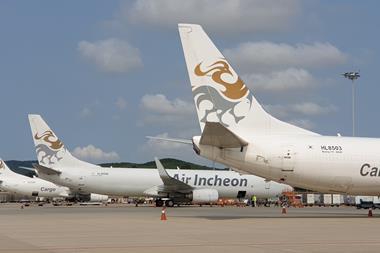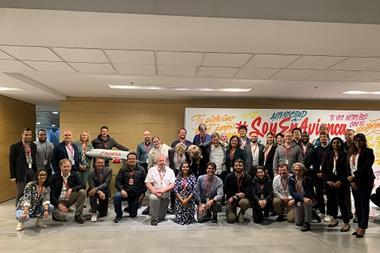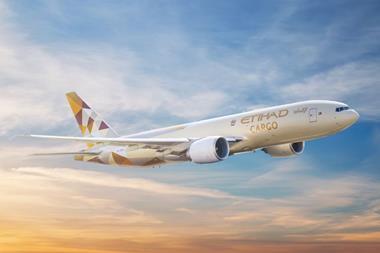
A recent survey - The Logistics Transport Evolution: The Road Ahead – commissioned by Deutsche Post DHL has revealed that companies are facing a market environment that is changing rapidly, both in terms of geopolitical developments and technological transformation.
In terms of ground transportation operations, by far the biggest issue on companies' minds was revealed to be e-commerce, and its many implications on service and ground transportation requirements.
Of course, these changing requirements will also impact on DHL’s – and other logistics service providers’ – related airfreight distribution strategies.
What DHL described as the “extraordinarily high service expectations born of e-commerce” are having the biggest impact.
The Germany-headquartered integrator points to factors such as customers expecting same- or next-day delivery, variable last-mile delivery options, high in-transit visibility, as well as flexible or free return policies and always in-stock inventories as being particular challenges for logistics service providers.
The DHL survey found that the impact of e-commerce on markets, in general, and ground transportation in particular, varies by region.
For example, when comparing the impact of e-commerce over the next one to two years versus three to five years, US respondents expected the impact to slightly decrease, from 63% to 60% while, in Europe, the Middle East & Africa, Asia Pacific and Latin America, that same number increases from 65% to 69%.
Paul Stone, CEO DHL Supply Chain Nordics and head of transport for MLEMEA, explained: “Here in Europe, transport is undoubtedly a critical aspect of the global business environment, and our findings indicate that companies across sectors and markets now recognise its strategic value.
“That's reflected by our customers’ C-suite executives becoming more involved in transportation discussions,” Stone informed.
“We undertook this study to gain an insight into exactly what companies expect from their transportation service providers, both today and tomorrow.
“Our research has shown us that customers are increasingly looking for complete solutions with a global reach as they can solve a wide range of transportation issues and requirements.
“In Europe, particularly, environmental commitments are increasingly important to our customers.”
Broader societal factors were also highlighted as presenting associated challenges, with 61% of companies referencing an increase in urbanisation as a factor that will significantly impact their future business.
Technology and its potential to help manage this complex environment are increasingly seen as a standard requirement of 3PLs: more than two thirds (67%) of companies believe that big data analytics and artificial intelligence (AI) are services that are essential for 3PLs to offer their shipper customers, for example.










